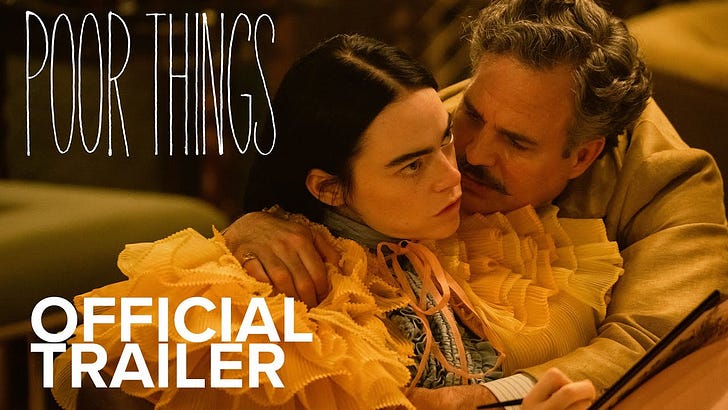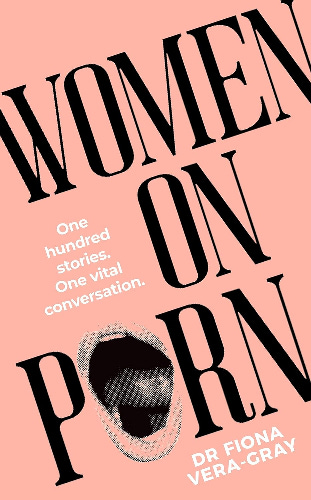Hello! I have been all over the place talking about Toxic this last week. The appearance I was most starstruck about: NPR’s All Things Considered. It was so much fun to chat to Scott Detrow about the book, and the package they cut together from it is a perfect intro to the book (all the more impressive because we were sabotaged at one point by a bagpiper starting up outside the building I was recording in). Do give it a listen.
I was also interviewed for the Washington Post, turned up on Radio New Zealand, and — in a scheduling error that will fuel my anxiety dreams for years to come — did the breakfast show on Chicago’s WGN9 via Zoom with wet hair and no makeup. Haunting! Finally, Katie Couric’s newsletter ran an extract from the Janet chapter so you can relive the weird, febrile infamy of it all 20 years on. Just don’t expect to find it any less deranged.
Listened
Tracy Chapman and Luke Combs, “Fast Car” (live at the Grammys)
(I couldn’t figure out how to embed the video so click the link to watch it.) This is a gorgeous performance of a gorgeous song — not so much for any vocal alchemy (it’s nice to hear them together, but they’re singing next to each other rather than strictly duetting) as for the chemistry they have on stage. It’s a tidy riposte to some of the bullshit social media discourse Combs’ cover version spawned. The way Chapman smiles at Combs, and the way he looks across at her — two artists paying gracious attention to each other’s artistry, one as singer-songwriter and the other as an interpreter of one of the great American tragedies.
I always forget how sad this song really is: what a trick Chapman pulled off, fitting that surging chorus to a story of utter disappointment. The “feeling that I belonged”, the “feeling I could be someone” are in the past of the narrative: the narrator has tried, has failed to get out of small town hopelessness; has hitched herself (himself, in the cover, I think, though the gender swap is a bit ambiguous) to someone who seemed like an exit but turned out to be a bear trap. It’s “Fairytale of New York” (also released in 1988) as a monologue, and with, maybe, a sliver of hope that the codependency can be shaken off.
Watched
Poor Things (general release)
I was lucky: I watched an early screening Poor Things back in October as the Bath Film Festival, and enjoyed it in innocence of the subsequent take industry. So what I saw was an exuberant sci-fi fantasy about an improbably pedigreed young woman called Bella Baxter (played by Emma Stone with the physical commitment and verve of Buster Keaton, which is a comparison I can confidently make now I’ve seen a Buster Keaton film), and the efforts of various men to train or tame her.
If you haven’t seen it yet, and you have been reading the takes, I am afraid you might see something much less fun: a film that may or may not be feminist and that can only be enjoyed if it passes the test. I’m increasingly touchy about the idea of ascribing politics to art — you may remember the same “is it or isn’t it” debate around Barbie (and Gerwig’s attempts to sidestep it).
Art and art’s consumption are always informed by politics. But to make an art work’s politics the sole test of its value is to reduce everything to the level of propaganda. It also allows you to recuse yourself from the far more important, and interesting, question of how something made you feel. Deciding whether or not you agree with art is easy. Letting it move you is a much more dangerous proposition. In any case, there are plenty of “not feminist” works which have been hugely influential in forming my own feminism (Videodrome, obviously).
It is about pleasure as an engine of chaos, and it is chaotically pleasurable to watch
It’s true, as several people have pointed out, that Poor Things offers a male vision of a female character: based on a novel by Alasdair Gray, directed by Yorgos Lanthimos (albeit produced by Stone, who is far from a passive performer here). But that should not be seen as a criticism. Rather, it’s the essence of the story, as I wrote in my piece about the novel from December: it’s about the efforts of men to construct an ideal woman, and the persistent refusal of the woman in question to be limited to that ideal.
Bella is, explicitly, a fantasy — the brain of a baby Frankensteined into the body of a nubile woman. And as often happens in both Gray and Lanthimos’s work, the fantasy overspills and unsettles the real. It is about pleasure as an engine of chaos, and it is chaotically pleasurable to watch. (Of course, it’s not actually chaotic — but as a viewer, even a viewer who knows the book well, it is unexpected, which is near enough the same thing.)
A note on the brothel scenes. Some viewers seem to think these are “pro-sex work” or minimising of how unpleasant prostitution is. I think that is a misapprehension. In the film, Bella is clear that she finds the men who pay for her revolting, and the sex less pleasurable than she (childishly) expects. The clinching line comes from Swiney, the madam, who tells a shocked Bella (I paraphrase) that these men are paying extra for the cruelty. I wouldn’t bet on Gray, Lanthimos or Stone being advocates for the Nordic model. Even so, it’s a line Andrea Dworkin could have been proud of.
Read
Fiona Vera-Gray, Women on Porn (Transworld)
This book starts as the answer to an omission. When we discuss women and porn, we talk about the women in porn, and we talk about the women affected by porn via their male partners, but we rarely talk directly to women about their experiences with porn. So Fiona Vera-Gray interviewed 100 women and listened to their stories — the positive, the negative and the sometimes disturbing. My full review is in the Sunday Times: I found it genuinely illuminating, and if it didn’t change my mind about porn being a problem (it is not a polemical book), it did give me new ways to think about what that problem is.
Gimme, gimme more…
Absolutely dazzled by the confidence of Taylor building her next album launch around the (vindicated) expectation that she would be accepting the Grammy for her last album. So much for all that blah about spending her time between Eras dates “in bed” — as if Taylor ever rests.
Me on Vince McMahon’s exit from WWE and the kayfabe death of kayfabe for UnHerd.
I loved Laura Barton’s wise, joyful essay on unexpectedly becoming pregnant after she’d given up on the idea of motherhood. Welcome baby Barton and congratulations Laura.
Finding the Nicki Minaj/Megan thee Stallion feud very depressing!
Is Justin Timberlake leaning into his heel era?
A sensitive look from the NYT at young people who transition and then change their minds…
… and a sensitive look in the Times at an older person who transitioned and didn’t change her mind, but did rethink her position on gender and what transition means.
I’m intrigued by this neglected movie about a black conman but cannot help finding the framing of this article a bit rum. He performed 36 hysterectomies without medical training? And that was… funny?1
Unclear currently why Killer Mike ended the Grammys under arrest, but I really hope it doesn’t overshadow his wins. What a song:
As far as I can gather from limited reports on the real case, this didn’t actually happen: in classic conman style, he seems to have perpetrated a con about his con, wildly exaggerating his grifts.





The other thing re: 'Poor Things' is... It's fine for men to make artworks about how they see women and how they relate to them. I really like the novelist Marilynne Robinson and one reason is her perspective on masculinity which is very much not my own as a man. Only a wiener would get offended at that! I don't understand why we're increasingly running our arts sector, which is one of the rare places humans get to be really free, as if it were a particularly bureaucratic local authority.